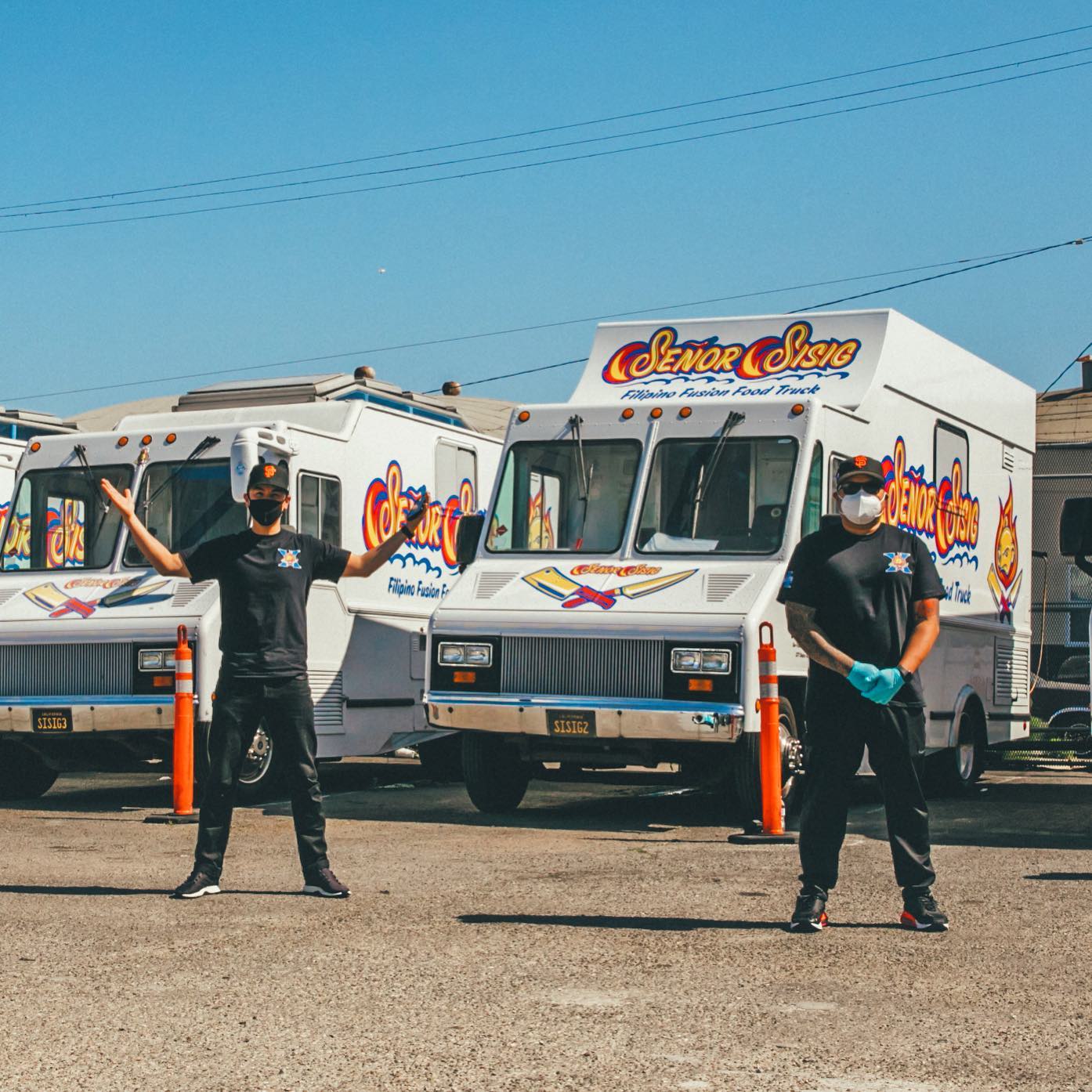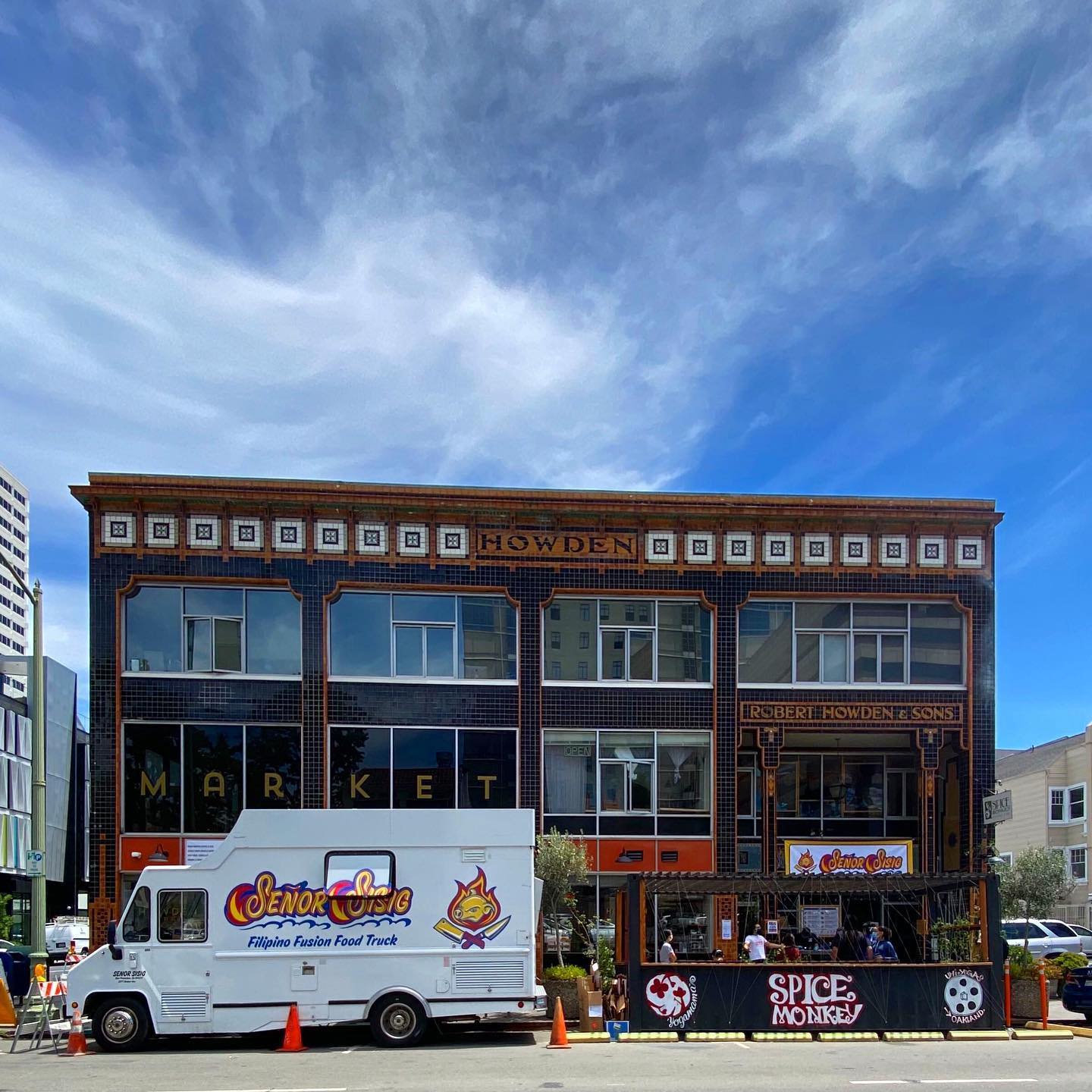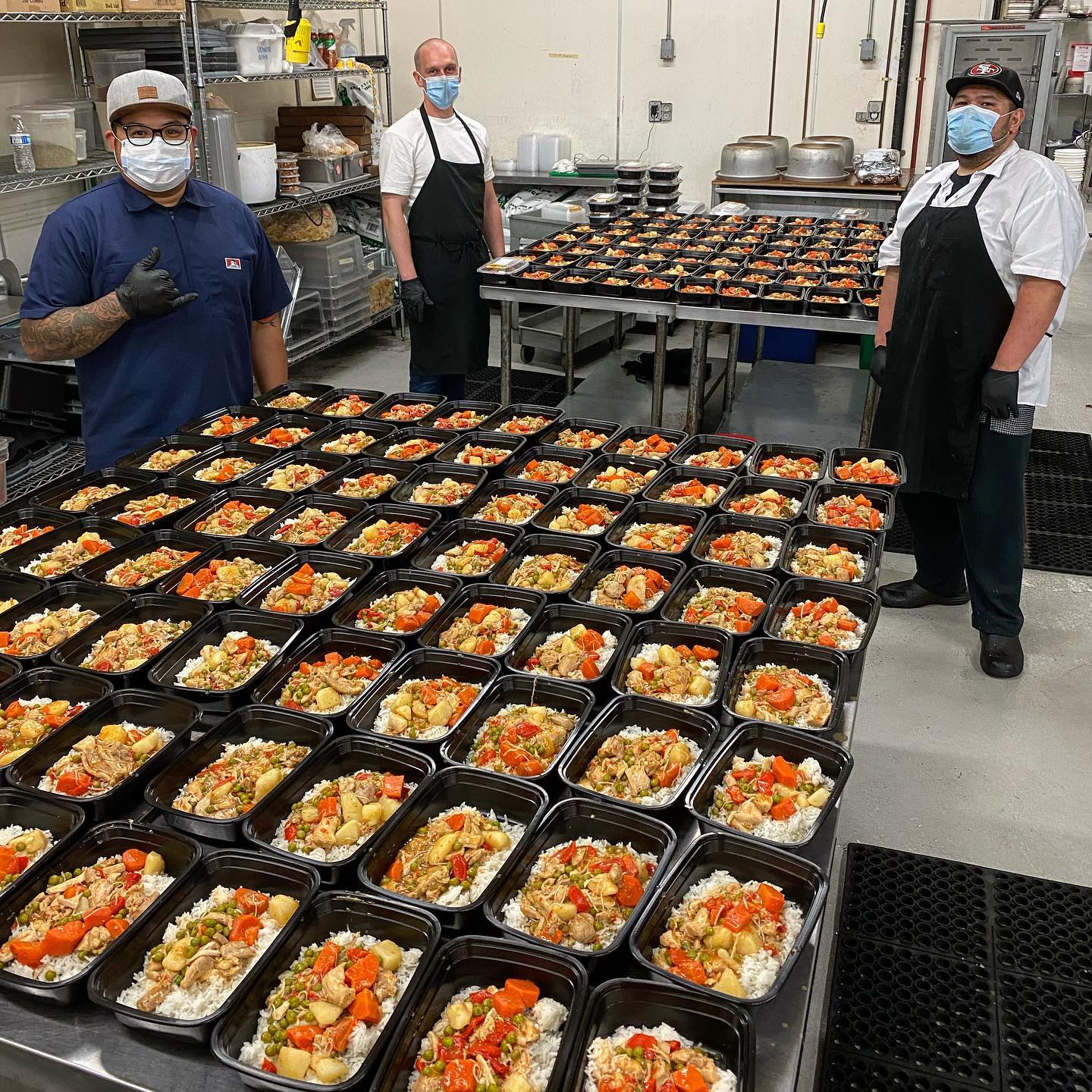#Sisig4thePeople

Señor Sisig, the San Francisco food truck phenom that helped spark the modern Filipino food movement in the United States, was built to withstand a recession. But cofounders Evan Kidera and Gil Payumo never expected what California Governor Gavin Newsom called a "pandemic-induced recession" — especially not on their tenth anniversary.
The first Señor Sisig truck started rolling in San Francisco in 2010, part of a wave of food trucks driven by chefs who had difficulty opening restaurants in the sluggish post-2008 economy. Its signature product, pork sisig tucked into a hefty Mission-style burrito, was ideal for the frugal moment: "The price point, the compactability, the portability, all that works," Kidera says.
Señor Sisig soon gained a cult following, with lines routinely stretching down whatever block they parked on. Guy Fieri paid a visit on his Food Network show Diners, Drive-ins, and Dives, as did Eddie Huang of Fresh off the Boat fame. Over the following years, the business grew in step with the American economy. Kidera and Payumo expanded their fleet from one food truck to six and, in November 2019, opened their first brick-and-mortar restaurant in San Francisco's Mission District. Two months later, the first coronavirus case was confirmed in California; on March 16, the Bay Area declared the nation's first shelter-in-place order.

"Taking the whole brand we've built over nine years into a restaurant, it was a new experience for us," Kidera says. "And we were just starting to get our feet under us, and then the virus hits." Like virtually every business owner in regions affected by the coronavirus, he and Payumo have been tasked with adapting to a new economic reality — one even stranger and less predictable than the Great Recession.
They have made some changes to fit into their customers' stay-at-home lifestyles. Four of the six Señor Sisig food trucks are grounded, and the remaining two now ply the streets of areas where large concentrations of Filipinos live, including Daly City and Oakland, instead of business centers like the Financial District and SoMa. But Kidera says that sales have been better than he expected. The restaurant has been holding its own through takeout and delivery, thanks in part to an online ordering system put in place before the crisis, and the trucks benefit from their mobility. "In times like these, if it's not working there, we can go somewhere else," Kidera says. "Whereas there are businesses that are stuck in the Financial District, where there are no (customers), and I feel terrible for them."
Grateful for their relative success, Kidera and Payumo have found ways to give back. In April, they launched a crowdfunding campaign called #Sisig4thePeople, through which they aim to donate 10,000 meals to low-income seniors and families in the Bay Area. So far, they have raised enough money to provide over 1,400 meals. They also joined the #FilipinosFeedtheFrontlines campaign launched by Kultivate Labs, a multi-restaurant effort that provides meals for health care workers at five Bay Area hospitals. Kidera has been invited to participate in the Filipino Food Movement's Savor Filipino Summit in June to share his experiences with other food business owners.
"We've all had struggles that we've had to deal with, whether it was a personal struggle, or your relationship struggle, or a group struggle, or a citywide struggle, but never has anybody dealt with something on this scale," he says. "There's no way for any one person to fix everything, but if we all kind of play up and listen and do our part, that's how we're going to make some change here. And so we're just doing what we can within our means."

In California, officials are hopeful that the worst of the struggle has passed. Gov. Newsom allowed non-essential businesses to begin reopening on May 8, and some restaurants across the state have begun offering dine-in service, albeit with masked servers and tables spaced far apart. (As of the time of writing, San Francisco's infection rate has not yet dropped enough to allow dine-in service.)
Kidera is not anxious to reopen. "When we're able to operate like this and it's safer for everybody, we might as well just continue to do what we're doing," he says. He and Payumo are also looking for safe ways to mark their 10th anniversary in June, which they had hoped to celebrate with the kind of birthday bacchanal that now feels like a relic of the past. Instead, they released an anniversary T-shirt, which comes free with a $100 donation to the #Sisig4thePeople campaign. They hope to spend their birthday month making videos that highlight the mom-and-pop businesses that neighbor their Mission District restaurant.
"Some of these kinds of legacy, generational restaurants are in risk of being put out of business, and that's scary," he says. "To me, that's even bigger than one individual business like Señor Sisig. … We really, really, need to bear down on our communities and our culture here in San Francisco, because we're at risk of losing a lot of that if we don't see it that way."
A version of this article appeared in ABS-CBN News.
Add a comment
0 Comments Add a Comment?